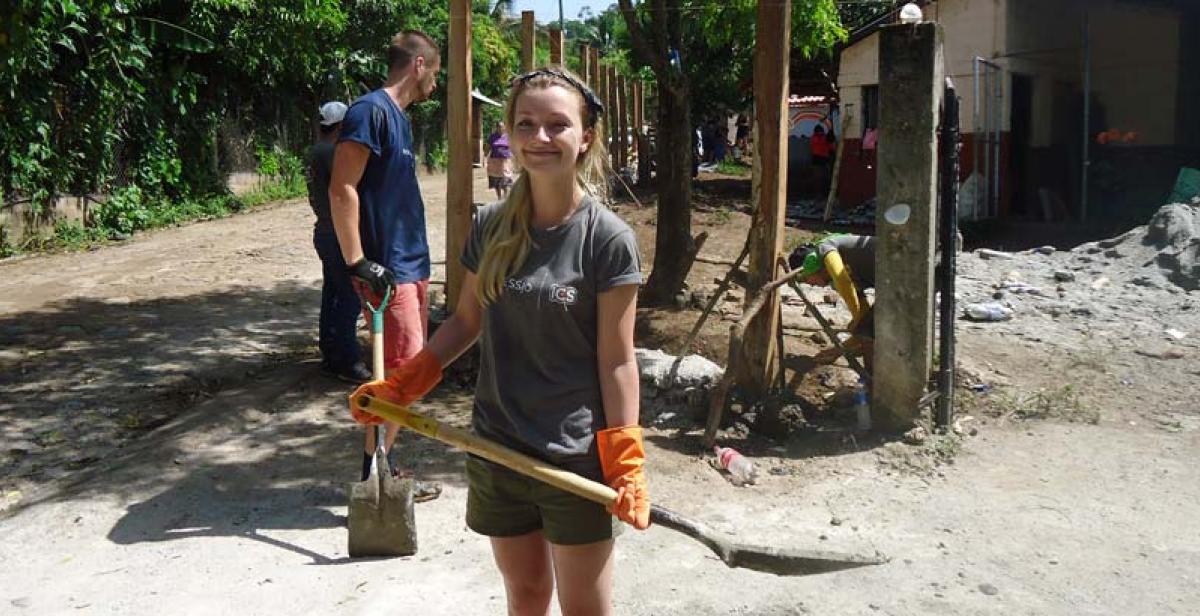A question that almost all of us were asked before we came to volunteer in the community of Santa Marta is, “so what are you actually going to be doing in El Salvador?” Since, at the time, I wasn’t exactly sure of the answer myself, I would often reply with something vague, along the lines of “we’re building a school” or “we’ll just be doing whatever needs done!” Sometimes the reaction to this somewhat underwhelming response would be a look of confusion. I couldn’t help feeling that people might have been thinking that it would be more beneficial if the money spent on sending 20 young Brits to Central America was just given directly to the community instead.
Since arriving in Santa Marta, I couldn’t help but occasionally ask myself this too. After orientation week finished and we began working, it quickly became obvious that some of us were perhaps not as useful as we had hoped to be. I had never used a machete, pickaxe, or sledgehammer in my life. I’m physically unfit and have massively struggled with eight hours of tough manual labour every day. I knew absolutely nothing about bio-construction and could never have imagined constructing a building from scratch, by hand, with only natural and recycled materials.
Nonetheless, the community is delighted to have us here. Our host families have welcomed us into their homes with open arms. The national volunteers have been patient and eager to teach us skills that we would never have had the opportunity to learn elsewhere. The community leaders of Santa Marta expressed their gratitude for our help, and told us that they´re overwhelmed knowing that people from so far away know of their existence, having felt ignored by their own government for so long (merely for supporting much needed social and economic reform).
Now over halfway through our time here, there are so many things we’ve learned which could not have been done without living within the community, learning by doing. We cried watching a documentary about El Salvador’s civil war in orientation week, but the reality didn’t hit until we heard first-hand accounts in our host homes of family members being murdered for demanding equality. We were horrified hearing of how multi-million dollar mining companies have exploited El Salvador’s natural resources, leaving small communities to cope with the detrimental effects on the environment and on their livelihoods; however, it wasn’t until seeing the impact of this greed on the community itself that we realised the true extent of the harm.
So when it comes to the question, “what are we actually doing in El Salvador?” the answer is not as simple as it may first seem – we’re not simply travelling to El Salvador, building a school, then returning home to normality. Progressio offers an opportunity for young people, both nationals and UK, to develop and to share their personal skills and experience through cross-cultural exchange. In sustainable development work, a group of volunteers on a 10-week placement are merely a small piece of a larger puzzle. In contrast to merely handing over money as aid, people-powered development is a slow, complex process, but one that is far more effective in empowering communities to get long term results. Working in solidarity with the community as one unified group of young people eradicates power dynamics and ensures sustainability, so that the community will continue to benefit from the ICS programme long after it is over.
The ICS experience won’t end when we come back to the UK either. It has allowed us to develop a global understanding of social and development issues. We´ll continue to be involved for the long term, raising awareness back home and in developing countries, and becoming catalysts for change. It might be cheesy but it really is an experience that we’ll carry with us for the rest of our lives.
Written by ICS volunteer Rachel Hill



